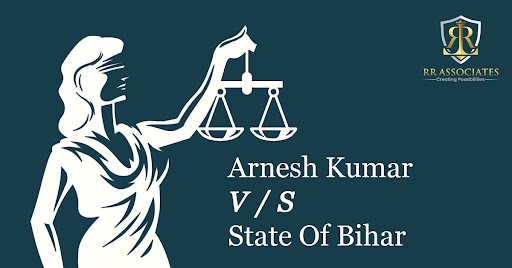In the landmark judgement of Arnesh Kumar v. State of Bihar[1], or known as the Arnesh Kumar Guidelines, the Supreme Court gave its judgment on arrest and the misuse of dowry laws. The Court issued guidelines to prevent unnecessary arrest, which according to the Court, brings “humiliation, curtails freedom and cast scars forever.”
Arnesh Kumar, the petitioner, was arrested in accordance with Section 4 of the Dowry Prohibition Act, 1961 after his wife reported that he had asked her for a dowry. She claimed that Kumar’s parents wanted eight lakh rupees, a Maruti car, an air-conditioner, a television, etc. and when this fact was brought up to him, he stood by his mother and threatened to marry someone else. The wife claimed that she was also driven out of her marital residence since the dowry demands were not met. Denying the allegations, Kumar applied for anticipatory bail, but his request was turned down. This prompted him to file an appeal in the form of a Special Leave Petition, which the Supreme Court accepted.
The Court issued the following directions[2] :
- All the State Government to instruct its Police offers not to automatically arrest when a case under 498A of IPC is registered but to satisfy themselves about the necessity for arrest under the parameters laid down from section 41of CrPC.
- All police officers be provided with a checklist containing specified sub-clauses under 41(1)(b)(ii).
- The police officers shall forward the checklist duly filed and furnish the reasons and materials which necessitated the arrest while forwarding or producing the accused before the Magistrate for further detention.
- The Magistrate while authorizing detention of the accused shall peruse the report furnished by the police officer in the terms aforesaid and only after recording its satisfaction, the Magistrate will authorize detention.
- The decision not to arrest an accused, be forwarded to the Magistrate within two weeks from the date of the institution of the case with a copy to the Magistrate which may be extended by the Superintendent of police of the district for the reasons to be recorded in writing.
- Notice of appearance in terms of section 41A CrPC be served on the accused within two weeks from the date of the institution of the case with a copy to the Magistrate which may be extended by the Superintended of police of the district for the reasons to be recorded in writing.
- Failure to comply with the directions aforesaid shall apart from rendering the police officers concerned liable for departmental action, they shall also be liable to be punished for contempt of Court to be instituted before High Court having territorial jurisdiction.
The Court held that arrest should not be made just because the offense is non-bailable and cognizable and therefore, lawful for the police to do so. No arrest can be made in a routine manner on a mere allegation of commission of an offense made against a person. The Court also stated that the arrest of the accused person should be exempted in situations where the sentence is less than seven years in prison or which may extend to seven years; with or without a fine.[3]
The Court summarized the rising number of marriage disputes. It stated that, the purpose of Section 498-A of the IPC was to safeguard women from the damaging effects of the dowry system, but has earned a poor reputation as one of the laws that the spiteful wives use as weapons rather than defense because it is cognizable and non-bailable in nature.
Like every coin has two sides, women abuse the laws and legislations that serve as a boon to them. India’s law on arrest lacks a degree of clarity and allows room for arbitrariness. A compliant under section 498A is all that is required to for a woman to get her husband and family to be arrested. This case highlights the problematic aspect of Section 498A of the Indian Penal Code, and section 4 of the Dowry Prohibition Act, which were in reality put in place to protect women from the dowry system. It is also essential that police must be made aware of the limitations on their ability to make arrests. The Court in this case not only granted bail to the accused but also addressed the issue of unnecessary arrest- as it established some mandatory guidelines that the police must adhere to prior to arresting an accused. This created additional checks and balances to the power of police and provided relief to those who were being harassed by false cases.
[1] Arnesh Kumar v. State of Bihar, [2014] 8 SCC 273
[2] Arnesh Kumar v. State of Bihar para (11)
[3] Arnesh Kumar v. State of Bihar para (6)

